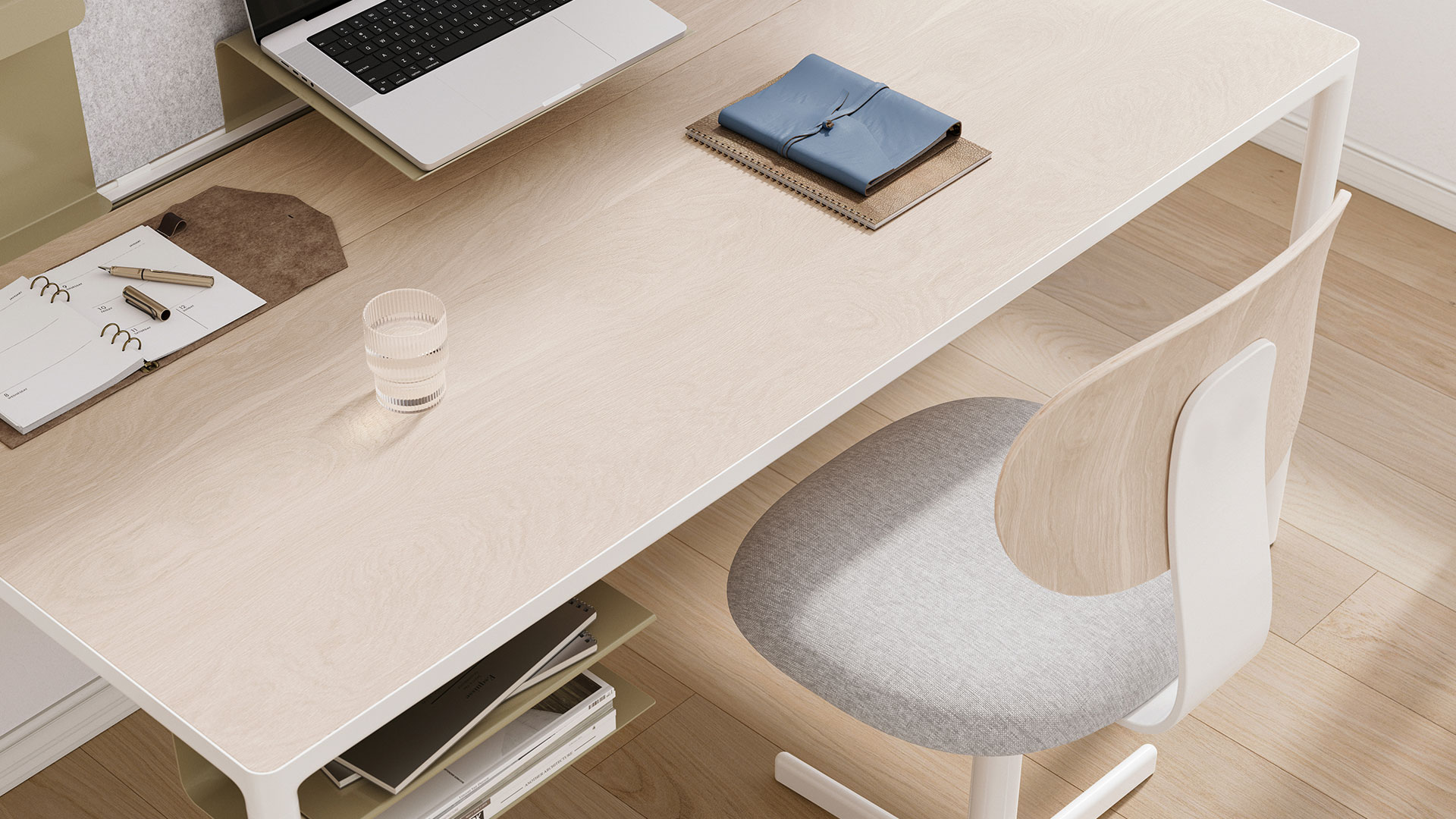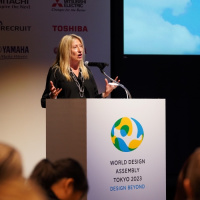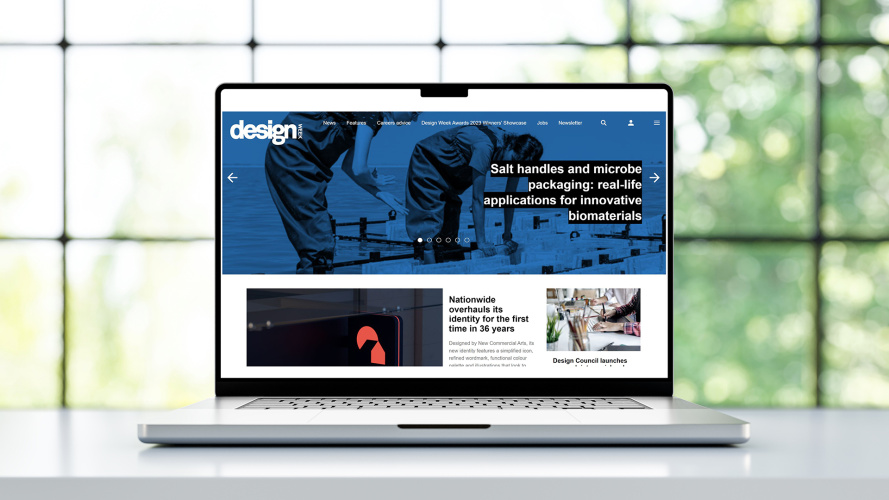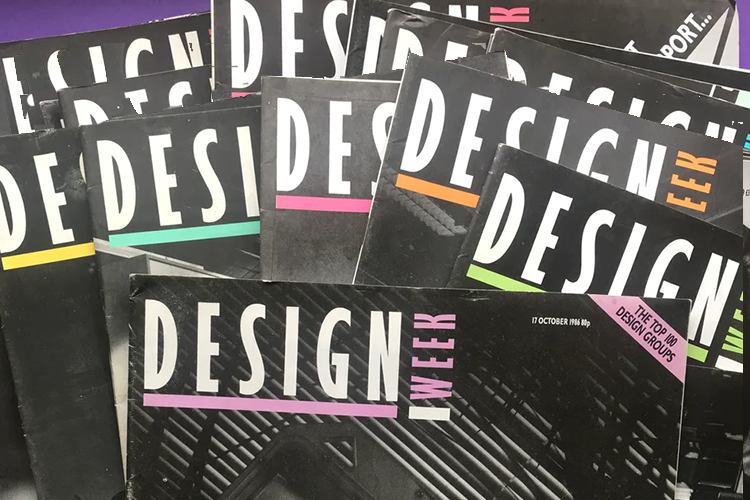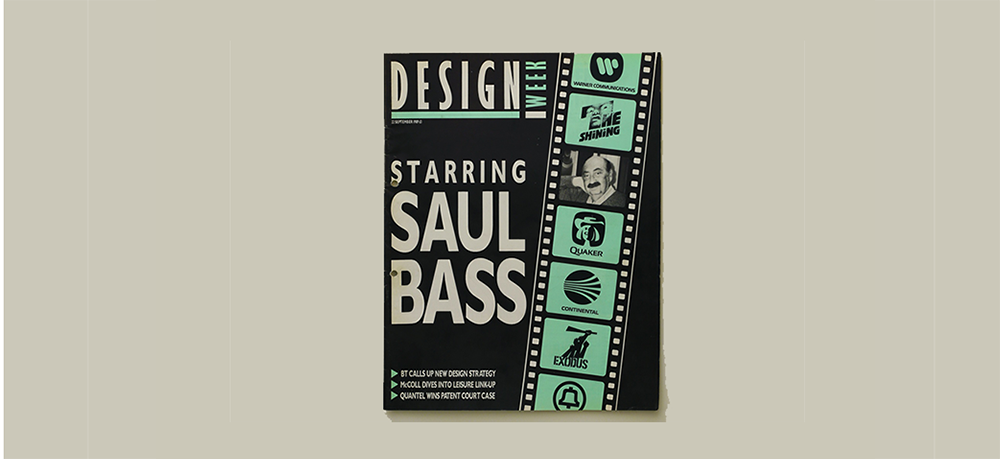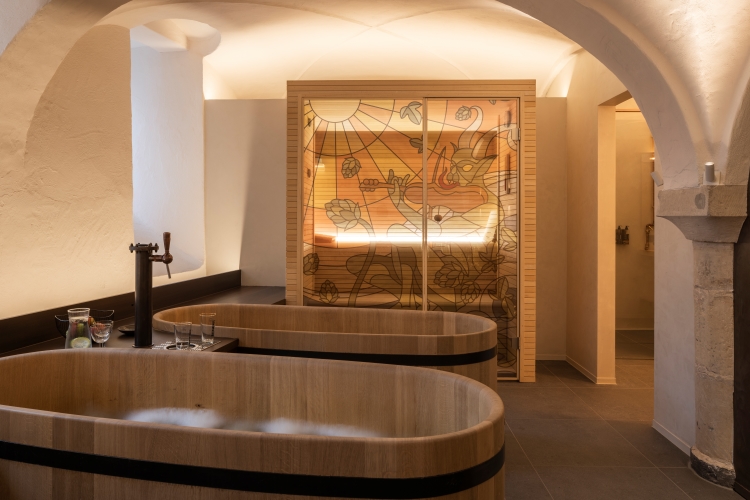Studio Elk devises modular closed-loop home-office furniture service
Designed to reduce the amount of office furniture waste in UK landfill, the Koru furniture system aims to position sustainability as “a strategic advantage rather than a corporate responsibility”.
Studio Elk has designed a new a work-from-home furniture subscription service concept, with modularity and a closed-loop material system at its core.
According to Water Roadmap Annual Report 2023, 1.2 million office desks and 1.8 million office chairs ending up in UK landfill every year. Studio Elk suspects that a “rise in remote and hybrid working” leading to an increasing need for “home-working setups” could be a contributor, says its founder Tony Elkington.
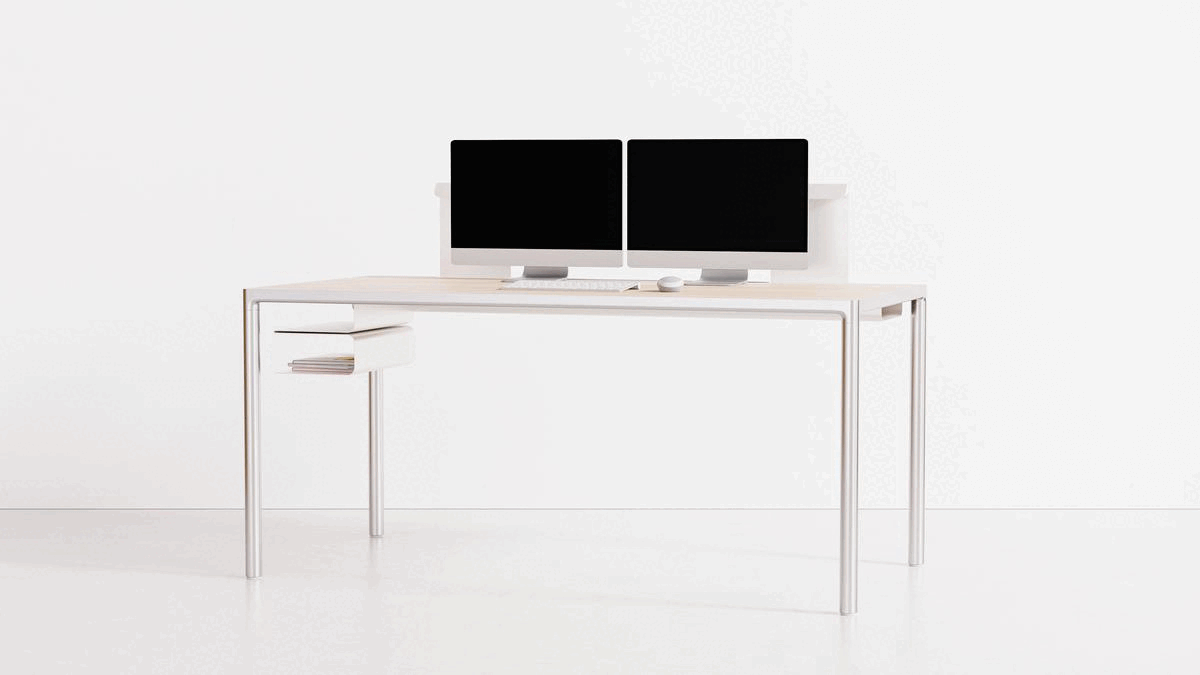
A need for “professional-grade office setups that fit the size constraints and interior aesthetics of their home space” can often lead to “big lump-sum expenditures” for employers, says Elkington, with the added “logistical nightmare of managing delivery, maintenance and storage”. He believes that existing models result in office furniture being thrown away and rebought, “accelerating the rate of disposal in a product category that is traditionally long-lasting and durable”.
Studio Elk’s solution, Koru, is built around a Product-as-a-Service (PaaS) business model and aims to meet the needs of “people, planet and profit”.
“Flexibility and convenience”
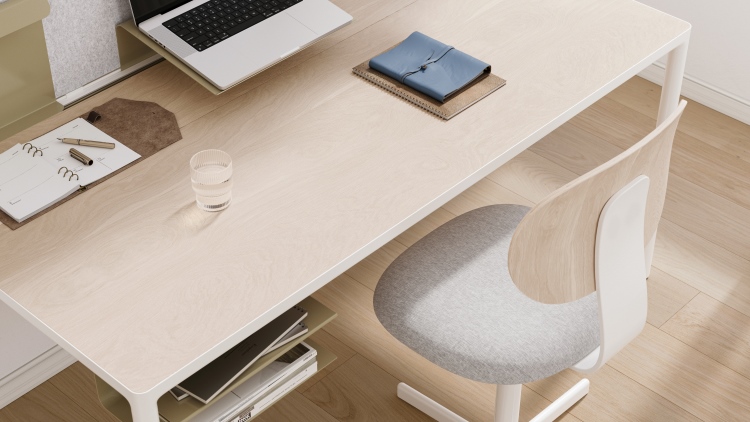
Elkington explains how the design caters for “the customisation needs of employees” and provides “flexibility and convenience for their employers”. The desk frame comprises aluminium extrusions and die cast corners, allowing for various desk sizes while an attachment system enables the addition of accessories such as a cable tray, backboard, laptop stand, shelving and a light.
Individual components can be “easily removed and replaced to enable reconfiguration, repair and disassembly”, meaning furniture can be modified to meet “space constraints, functional requirements and style preferences”, says Elkington. When considering the aesthetic qualities of the furniture, he says the studio looked to balance “the utility of office furniture with the softness of the home environment”, through material and colour choices as well as form.
“Hard-wearing and home sensitive”
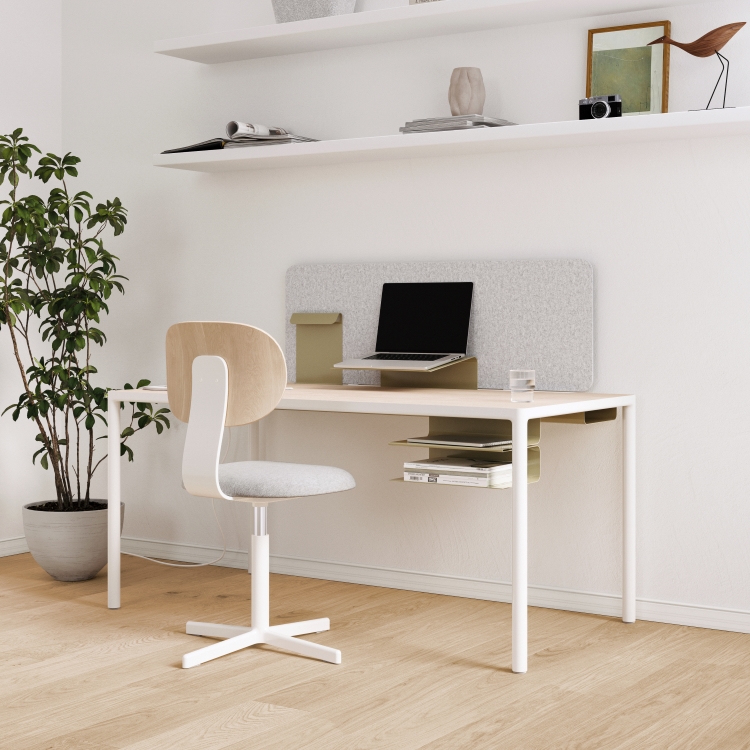
Recommended: Artek and Formafantasma “propose new aesthetic of sustainability”
Koru considers the planet by encouraging “reuse of furniture and recovery of materials in order to reduce waste”, says Elkington, explaining how Studio Elk selected “hard-wearing and home sensitive” materials, suitable for a closed-loop system. Desk and chair frames, as well as accessories, are made from recycled aluminium while the desktop is made from plywood and the backboard and feet pads are made from recycled felt.
Opting for felt pads instead of castor wheels on the chair created an opportunity to reuse offcuts from the backboard and, according to Elkington, chair wheels are less critical in the home context. By minimising the number of materials in the furniture, Studio Elk wanted to facilitate “easier management of material flows within the system”, he adds.
Elkington reinforces that “longevity starts with durability”, as “investing in hard-wearing materials and sturdy construction is actually in Koru’s best interest as the service provider”. It increases the lifespan of the product and the revenue generated over time. Koru furniture is designed for repair and disassembly so that individual parts can be replaced if needed.
“Cost and inconvenience are generally the biggest barriers to product repair”, according to Elkington, who says Koru makes it easy to request repairs through the app and facilitates the delivery of replacement parts “directly to the user” for “a frictionless repair experience”. This also helps ensure that “damaged parts are recovered for refurbishment or recycling within the system”, he adds.
“Predictable monthly costs and zero inventory management”
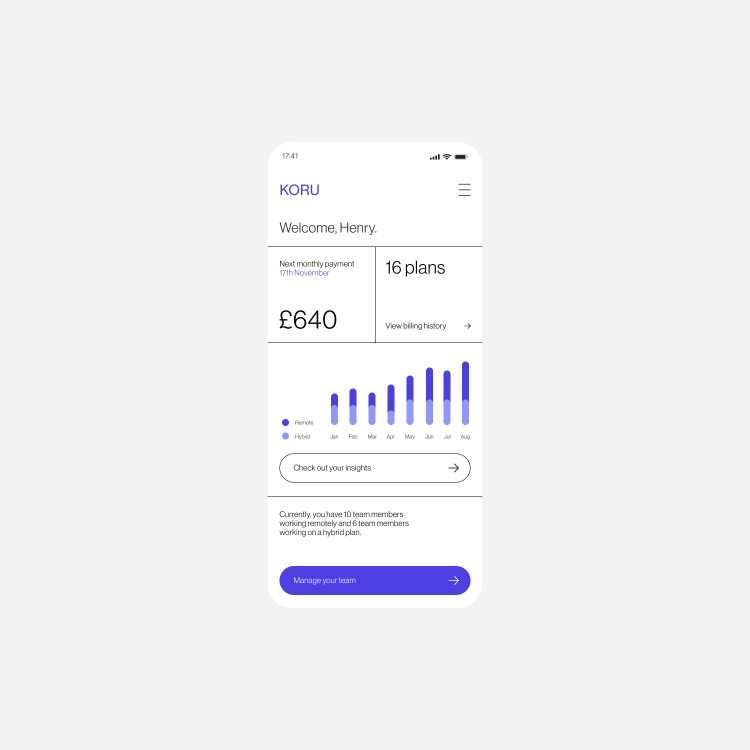
Recommended: “A radical renaissance”: how the climate crisis is changing the role of designers
Studio Elk imagines that Koru’s primary customers will be businesses with remote and hybrid staff, which pay a monthly subscription per team member, with plans at different price points and a range of setup specification levels. Elkington says the system considers how “a remote worker might require a bigger desk, more storage and built-in lighting” while a hybrid worker might only need “a minimal home setup for a couple of days a week”.
The pay-monthly subscription averts “big up-front costs associated with onboarding new employees” and includes delivery and installation in employees’ homes, according to Elkington. Giving businesses flexibility to “pay only for what they need” was crucial to the business model as employers can benefit from “predictable monthly costs and zero inventory management” when the furniture is no longer needed, he explains.
Elkington describes the project as being “more about the service story than the physical furniture” but recognises that “in order for a circular business to be viable it has to deliver benefits for every stakeholder in the value chain”. He hopes that Koru helps brands to see sustainability as “a strategic advantage rather than just a corporate responsibility” and is keen to take the Koru concept to the next stage “with the right partner”.
-
Post a comment
